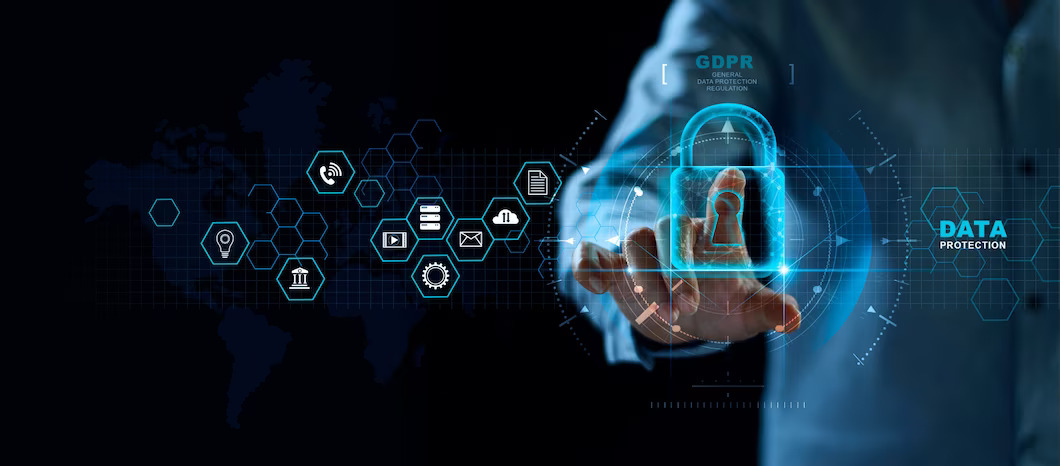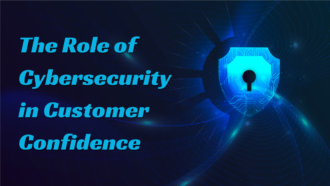Best Practices for Ethical and Secure Handling of Sensitive Information
- 1 5 Best Practices for Ethical and Secure Handling of Sensitive Information
- 1.1 1. Store The Most Sensitive Data Offline
- 1.2 2. Use Outside Help To Ensure Compliance
- 1.3 3. Don’t Retain Too Much
- 1.4 4. Use VPNs And Network Monitoring When Gathering Data
- 1.5 5. Keep Everything On A “Need To Know” Basis
- 2 Conclusion
It would be accurate to say that data has become one of the most important assets in the world. For businesses, data is used to make better decisions and thus increase productivity and profitability. However, no matter where you get your data gathering analytics, it is vital to understand the privacy rules and regulations. Therefore, they recommend following these handy tips above and beyond what the law requires.
5 Best Practices for Ethical and Secure Handling of Sensitive Information
1. Store The Most Sensitive Data Offline
When managing sensitive information such as credit card numbers, social security numbers, or personal identification details, it is crucial to adopt the highest levels of caution. Storing such data offline provides an additional layer of protection against potential cyber threats.
Why Offline Storage Matters
- Reduced Exposure: Offline storage means the data is not accessible through the internet, significantly lowering the risk of cyber-attacks. Cybercriminals can’t access what isn’t online.
- Controlled Access: Physical access can be more easily controlled and monitored, reducing the likelihood of unauthorized access.
How to Implement Offline Storage
- External Hard Drives: Invest in high-quality external hard drives that can be disconnected from any network. These should be used to store the most sensitive information.
- Network Isolation: Use machines that are incapable of connecting to the internet for data storage. This can be achieved by removing Wi-Fi cards or disabling network ports.
- Physical Security: Store offline data in a secure location such as a safe or a locked room. Access should be limited to authorized personnel only, and regular audits should be conducted to ensure data integrity and security.
2. Use Outside Help To Ensure Compliance
Navigating the complex landscape of data privacy laws and regulations can be challenging. Ensuring compliance requires a deep understanding of these laws and their implications.
Benefits of External Auditing and Compliance Support
- Expertise: External auditors or consultants bring specialized knowledge about data privacy regulations such as GDPR, CCPA, and HIPAA. They can identify gaps in your compliance efforts and recommend best practices.
- Objectivity: An external perspective can provide an unbiased assessment of your data handling processes, revealing vulnerabilities that internal teams might overlook.
- Continuous Improvement: Regular audits help you stay updated with evolving regulations and adjust your practices accordingly.
How to Engage External Help
- Choose Reputable Auditors: Select firms or individuals with a proven track record in data privacy and compliance.
- Regular Audits: Schedule regular audits and compliance checks to ensure that your data handling practices remain up-to-date with current laws.
- Compliance Monitoring Tools: Utilize platforms that offer compliance monitoring for data collection tools, such as web scraping software. These tools can help you avoid unintentional breaches by ensuring that only permissible data is gathered.
3. Don’t Retain Too Much
While collecting data is essential for insights and decision-making, retaining excessive amounts of data can create unnecessary risks and challenges.
Why Data Minimization Is Important
- Security Risks: The more data you have, the greater the potential for breaches. Minimizing data reduces the amount of sensitive information that could be compromised.
- Storage Costs: Storing large volumes of data can be costly, both in terms of physical storage solutions and maintenance.
- Compliance: Data protection regulations often emphasize the principle of data minimization. Retaining only what is necessary helps ensure compliance with these regulations.
How to Minimize Data Retention
- Pre-Sort Data: Before storing data long-term, evaluate its relevance and necessity. Retain only the data that is essential for your purposes.
- Regular Reviews: Implement a schedule for reviewing and purging outdated or unnecessary data. This process should be documented and conducted regularly.
- Automated Tools: Use data management tools that can automatically flag or delete data that is no longer needed, based on predefined criteria.
4. Use VPNs And Network Monitoring When Gathering Data
The process of data collection, particularly online, is fraught with risks. Ensuring that data is gathered securely is as important as how it is stored.
Why Secure Data Collection Is Crucial
- Interception Risks: Data can be intercepted during collection if proper security measures are not in place. This is particularly true for sensitive or personally identifiable information.
- Anonymity: Using tools that obscure your identity and location can prevent unauthorized tracking and potential data breaches.
How to Secure Data Collection
- VPNs: Use Virtual Private Networks (VPNs) to encrypt your internet connection and mask your IP address. This helps protect the data you gather from interception.
- Firewalls and Protection: Employ robust firewalls and other router-level protections to safeguard your network from external threats.
- Network Monitoring: Implement real-time network monitoring to detect and respond to suspicious activities promptly. Having a network security expert monitor traffic can further enhance your defenses.
5. Keep Everything On A “Need To Know” Basis
Limiting access to sensitive information is a fundamental aspect of data security. The more people who have access to this data, the greater the risk of misuse or breaches.
Why Access Control Is Essential
- Reduced Risk: Limiting access reduces the potential for data leaks or unauthorized use. Only individuals who need the information to perform their duties should have access to it.
- Accountability: By controlling access, you can better track who has interacted with the data, enhancing accountability and traceability.
How to Implement “Need To Know” Policies
- Access Controls: Use role-based access controls to restrict data access to only those who require it for their work. Implement multi-factor authentication for additional security.
- Regular Audits: Conduct regular audits of access logs to ensure compliance with access policies and identify any unauthorized attempts to access data.
- Training and Awareness: Educate employees about the importance of data security and their roles in protecting sensitive information. Regular training sessions can reinforce these practices and keep security top of mind.
Conclusion
In conclusion, handling sensitive information with care is not just a legal obligation but a moral imperative. By adopting these best practices, you can enhance the security and ethical management of sensitive data, protecting both your organization and the individuals whose data you handle. Remember that data protection is an ongoing process, and staying informed about the latest threats and regulations is crucial. Implementing these strategies will not only help you comply with existing laws but also build trust with your clients and stakeholders by demonstrating a commitment to responsible data stewardship.


















